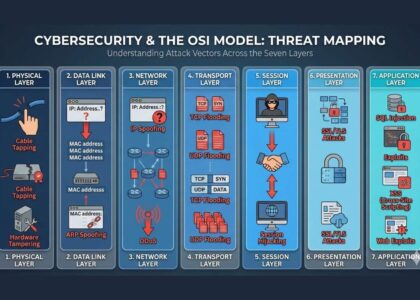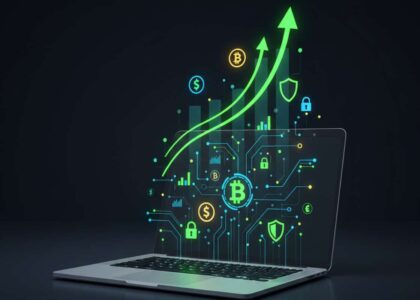In an increasingly interconnected world, where digital footprints stretch across continents and data flows through every industry imaginable, the demand for cybersecurity professionals has skyrocketed. But what exactly makes someone proficient in cybersecurity? What skills are essential for safeguarding networks, systems, and information in this evolving landscape? This guide covers the key cybersecurity skills everyone should know—from technical expertise to soft skills and everything in between.
1. Cybersecurity for Everyone
Cybersecurity isn’t just for IT professionals. Whether you’re a business owner, student, marketer, or software developer, understanding the basics of cybersecurity is crucial. Simple practices like creating strong passwords, recognizing phishing scams, and using two-factor authentication can protect not only your personal information but also that of your organization.
Cybersecurity literacy should be viewed as a form of digital hygiene—an essential skill in today’s world.
2. Network Security
Network security forms the foundation of any strong cybersecurity strategy. It involves safeguarding internal networks from unauthorized access, misuse, or theft. Professionals in this area configure firewalls, manage VPNs, and monitor traffic using intrusion detection and prevention systems (IDS/IPS).
Mastering network protocols, understanding TCP/IP, and being familiar with security layers like the OSI model is a must-have skill for any cybersecurity expert.
3. Communication
No matter how technically proficient you are, if you can’t communicate your findings, strategies, or threats, your impact will be limited. Whether it’s writing a report for stakeholders or explaining a vulnerability to a non-tech manager, strong communication bridges the gap between tech teams and decision-makers.
4. Adaptability
The cybersecurity landscape is ever-changing. Threat actors are always evolving their tactics, so professionals need to be flexible and willing to learn continuously. Being adaptable means staying up to date with the latest threats, software patches, and best practices in the field.
5. Incident Response
When a breach occurs, incident response skills are critical. This includes preparing for, detecting, containing, and recovering from security incidents. Incident responders follow a playbook to minimize damage and restore normal operations as swiftly as possible.
Understanding how to conduct forensic investigations post-breach and document lessons learned is an essential skill for security teams.
6. Coding
While not every cybersecurity role requires programming, understanding coding languages like Python, JavaScript, or Bash can help in automating tasks, writing scripts for penetration testing, or analyzing malware.
For example, Python is widely used in developing security tools and automating repetitive tasks.
7. Problem Solving
Cybersecurity is essentially a continuous puzzle. Problem solvers thrive in this environment—they think analytically, creatively, and can troubleshoot issues under pressure. Whether it’s decoding suspicious network activity or designing a new secure authentication system, critical problem-solving is vital.
8. Penetration Testing
Penetration testers, or ethical hackers, simulate cyberattacks to find vulnerabilities in systems before malicious actors do. These professionals use tools like Metasploit, Burp Suite, and Kali Linux to exploit weaknesses and report them responsibly.
Pentesting requires deep technical skills, legal awareness, and an understanding of various attack vectors.
9. Security Audit
Security audits involve evaluating an organization’s information systems to ensure compliance with policies, procedures, and regulations. Auditors assess risks, evaluate safeguards, and recommend improvements.
Familiarity with standards like ISO 27001, NIST, and SOC 2 is essential for conducting effective audits.
10. Intelligence Analysis
Cyber threat intelligence analysts collect, process, and analyze data about emerging threats. They identify adversary tactics, techniques, and procedures (TTPs) to forecast attacks and prepare defenses.
Being able to interpret IOCs (Indicators of Compromise) and correlate them with real-time threats can give your organization a significant defensive edge.
11. Collaboration
Cybersecurity is a team sport. Professionals must collaborate with IT, compliance, legal, and business units to create a secure ecosystem. Whether it’s implementing a new security protocol or responding to an incident, teamwork ensures success.
12. Critical Thinking
Attackers often think outside the box—so should defenders. Critical thinking allows cybersecurity professionals to analyze a problem from different perspectives and devise effective countermeasures.
Instead of reacting, they anticipate. Instead of fixing, they prevent.
13. Intrusion Detection
Detecting intrusions is essential to stopping breaches in their tracks. Tools like Snort, Zeek, or commercial SIEM platforms (e.g., Splunk, QRadar) are used to detect anomalies and trigger alerts.
Professionals must understand behavioral analysis, signature-based detection, and false-positive reduction.
14. Operating Systems
A deep understanding of operating systems, especially Linux and Windows, is crucial. Cybersecurity professionals need to know how OSes handle memory, files, user permissions, and logs.
This knowledge is key in everything from vulnerability assessment to malware analysis.
15. Risk Management
Not every threat needs to be eliminated—some can be accepted or transferred. Risk management involves identifying potential threats, evaluating their impact, and determining the appropriate response.
Understanding frameworks like FAIR, and tools like risk matrices, allows security teams to prioritize their efforts effectively.
16. Artificial Intelligence
AI and machine learning are rapidly becoming indispensable in cybersecurity. From threat detection to behavioral analysis, AI can automate complex tasks and detect patterns humans might miss.
Professionals should understand how AI works, its ethical implications, and how to train and evaluate AI models used in security contexts.
17. Attention to Detail
Small mistakes can lead to massive breaches. A misconfigured server or overlooked log entry might go unnoticed by a casual observer, but not by a skilled cybersecurity professional.
Attention to detail ensures every patch, policy, and setting is checked thoroughly.
18. Digital Forensics
Digital forensics involves investigating cybercrimes and gathering evidence. This skill is crucial in incident response and legal proceedings. Forensic professionals recover deleted files, analyze malware, and trace attacker footprints.
Tools like Autopsy, FTK, and EnCase are standard in this domain.
19. Regulatory Guidelines
Laws and regulations play a major role in cybersecurity. Professionals need to be familiar with GDPR, HIPAA, CCPA, PCI-DSS, and other data protection laws relevant to their industry.
Non-compliance can result in fines, lawsuits, or reputational damage.
20. Cloud Security
As businesses migrate to cloud platforms like AWS, Azure, and Google Cloud, securing cloud infrastructure becomes vital. Cloud security includes managing access controls, configuring encryption, and monitoring cloud-native threats.
Professionals must understand concepts like shared responsibility, IAM (Identity and Access Management), and cloud compliance.
21. Application Security
From web apps to mobile apps, vulnerabilities like SQL injection, XSS, and insecure authentication can leave businesses exposed. Application security ensures software is developed and maintained securely.
Learning secure coding practices, static and dynamic code analysis, and penetration testing of applications is key.
22. Networking and System Administration
Strong foundational knowledge in networking and system administration helps in identifying weak points and securing them. This includes understanding DNS, DHCP, routing, ports, protocols, and system configuration.
Cybersecurity professionals often start their careers in sysadmin or network roles before moving into security.
23. Familiarity with Virtual Machines
Virtual machines (VMs) are used for testing malware, running labs, and creating isolated environments for pentesting. Tools like VirtualBox, VMware, and Hyper-V allow professionals to simulate real-world environments safely.
Knowing how to configure and manage VMs is a vital practical skill.
Conclusion
Cybersecurity is a multi-disciplinary field that goes far beyond just firewalls and antivirus software. It combines technical prowess with strategic thinking, communication, and a lifelong commitment to learning. Whether you’re just starting or are an experienced professional, developing the skills listed above will set you on the path to becoming a cybersecurity leader.
The digital world needs defenders—and with the right skills, you can be one of them.






